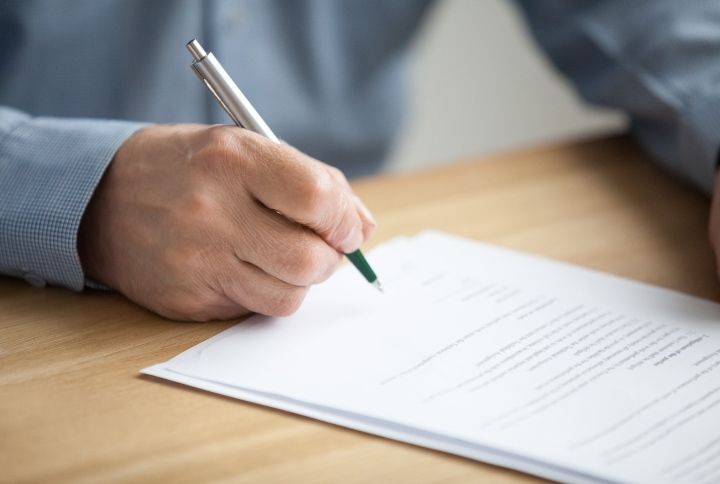One of the most important things you can do to legally protect your family is making a will. A will lets everyone know how you would like your money, property and possessions to be handled after you’ve passed on. Although it may sound morbid, having a will ensures your estate is passed on in accordance with your wishes, upon your decease.
So, we got in touch with a lawyer and got some common questions answered when it comes to creating a Will. Maithili Parikh is a Counsel at Bombay High Court and an alumna of Harvard Law School.
*This is not meant to be legal advice but is general information for a reference point. This should not and cannot be construed as legal advice or applied to your individual context.
Q1. What is a will?
A will is a legal declaration a person makes about the way they want their assets managed or distributed after their death. It is a unilateral document that takes effect only upon the death of the person making it. Although it is a legal document, there is no single format in which it must be made. It can be typed or handwritten. It can be on regular paper or stamped paper.

Q2. What are the types of wills?
According to the Indian Succession Act of 1925, there are two types of wills: Privileged and Unprivileged wills. Privileged wills are those wills which are made by soldiers who are employed in an expedition or in a war-like situation or an airman or mariner. Privileged wills do not have too many legal formalities and they can be made in writing or even orally. Unprivileged wills are all other kinds of wills and in the execution and drafting of these wills, there are more formalities. Generally, most wills are unprivileged. Privileged wills are the exception. This blog broadly covers information and requirements concerning unprivileged wills.

Q3. Who can make a will?
Anyone who is above the age of 18 and is of sound mind can make a will. However, if a person is of unsound mind, he/she can make a will during a lucid interval when he/she is of sound mind. A will made when a person is drunk is invalid. A person suffering from a mental illness or lacking mental faculties that makes him/her incapable of understanding the consequences of his/her act cannot make a will.

Q4. Why should you make a will?
A will is helpful to prevent tensions and disputes amongst the heirs. It also allows a person to distribute their assets as per his/her wishes or choices, and allows for distribution in a specified proportion among his/her spouse, children, parents, friends, and others. Essentially, it lets you decide how you want to deal with your belongings after your death.
It is also helpful to direct a smooth transition of your business or investment assets, provide for minor children’s care, provide for children from different marriages, and if you are charitably inclined, a will lets you direct your assets to the charity of your choice.

Q5. Is there a right age to make a will?
There is no right age to make a will. You can make it anytime after the age of 18 because that is when you are no longer a minor. However, something to keep in mind is that you should either make or redo your will once you are married and/or have children since these factors will drive the contents of the will.

Q6. What makes a will legal?
A will must be in writing (except where it is privileged)—either handwritten or typed, and be made in the free will of the testator or on his/her own volition. It must also be signed by two witnesses who have seen the testator writing the will. In addition, it is preferable to get the will registered.
It depends on the person making the will whether he/she wants to get the it registered or not. However, if registered, there will be a document of proof which will be safe and cannot be tampered with after. Even if the original will is destroyed or lost, a certified copy can be obtained.

Q7. What should a will cover?
A will should contain or cover the following:
A declaration: You should start off by declaring that you are of sound mind and choosing who you would like to be the executor of your will. If this isn’t your first will, you should make a statement ‘revoking’ (basically, cancelling) all previous wills and codicils.
List of your assets: Next you should list out all your assets. This should include any property you own, the money you have in your savings accounts, fixed deposits and mutual funds. Compiling this list can be time consuming and tedious. It is best to go over it a few times to make sure you haven’t left anything out.
Division of your assets: List out clearly who is to receive which assets. Going item-wise may remove any scope of confusion or mistake. If you wish to give your assets to a minor, don’t forget to appoint a custodian of the assets. It’s important to select someone you trust as a custodian.
Specific Directions: The testator should give directions for executing the will if he/she prefers to give any.
Your signature and the witnesses’ signature: You have to sign your will in the presence of two witnesses. Your witnesses will then have to sign to certify that the will was signed in their presence. Here you must date the will, and specify the full names and addresses of your witnesses. Remember that your witnesses don’t need to read your will. They just need to attest to the fact that you’ve signed it in their presence.
Initial each page: After this, the date and place must also be written at the bottom of the will. Every page of the will needs to be signed by you and your witnesses. Any correction made on the will must also be countersigned by you and the witnesses.

Q8. Can you change your will and when?
Yes, you can change your will at any time you like. But, you should especially update it if your assets are sold or new assets are bought. Once you have changed the will or made a new one, all earlier wills are automatically canceled. The best way to change your will is by destroying your old one and drafting a new one. Even if you don’t destroy your earlier will, the newer one will prevail but make sure you insert a statement in your new one that you are revoking all older wills.
If you want to just make a change or amendment, you can even make this change by drafting a codicil. A codicil is a document, made in relation to a will, which explains, alters or adds to the will’s instructions or distribution, and forms part of it. But remember that if you have registered the will, then it is important to register the codicil as well. A codicil has all the legal formalities of a will, including signature in the presence of two witnesses.
The same applies to your new will—if your old one is registered, you have to also register your new will. While making your new will, a person must revoke his earlier wills and again declare himself to be of sound mind. In case he wants to cut off any of his heirs from the property, it is better that he/she gives reasons for this to avoid any problems for the remaining heirs or others.

Click here for Part 2 of this blog.
Join Malini’s Girl Tribe on Facebook to be a part of more such conversations!

